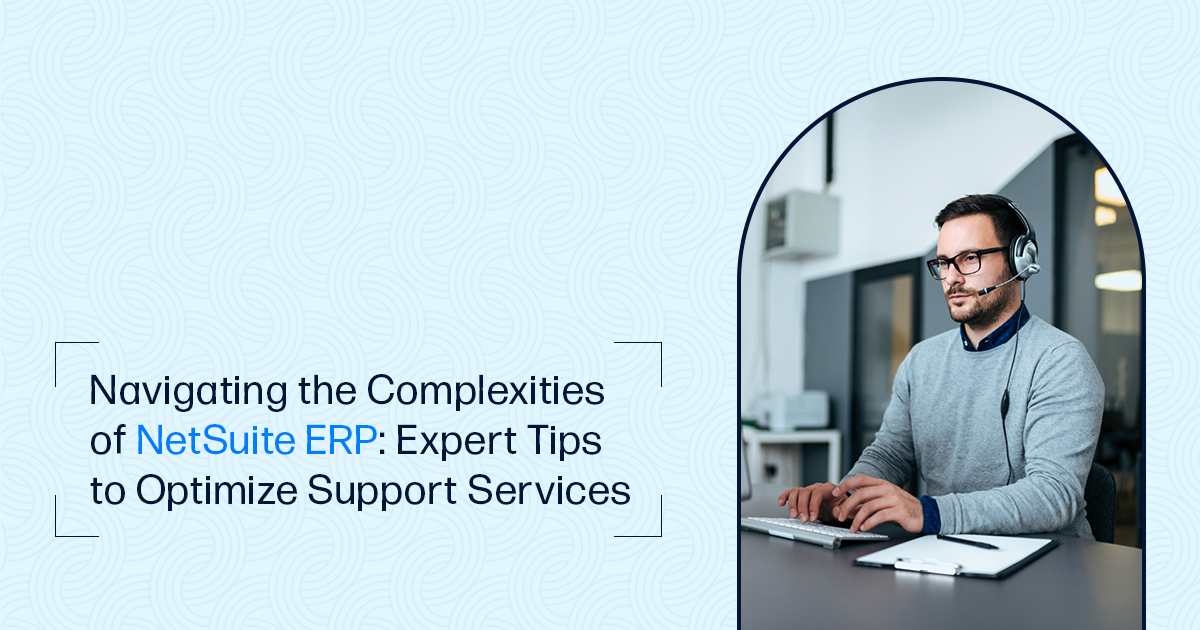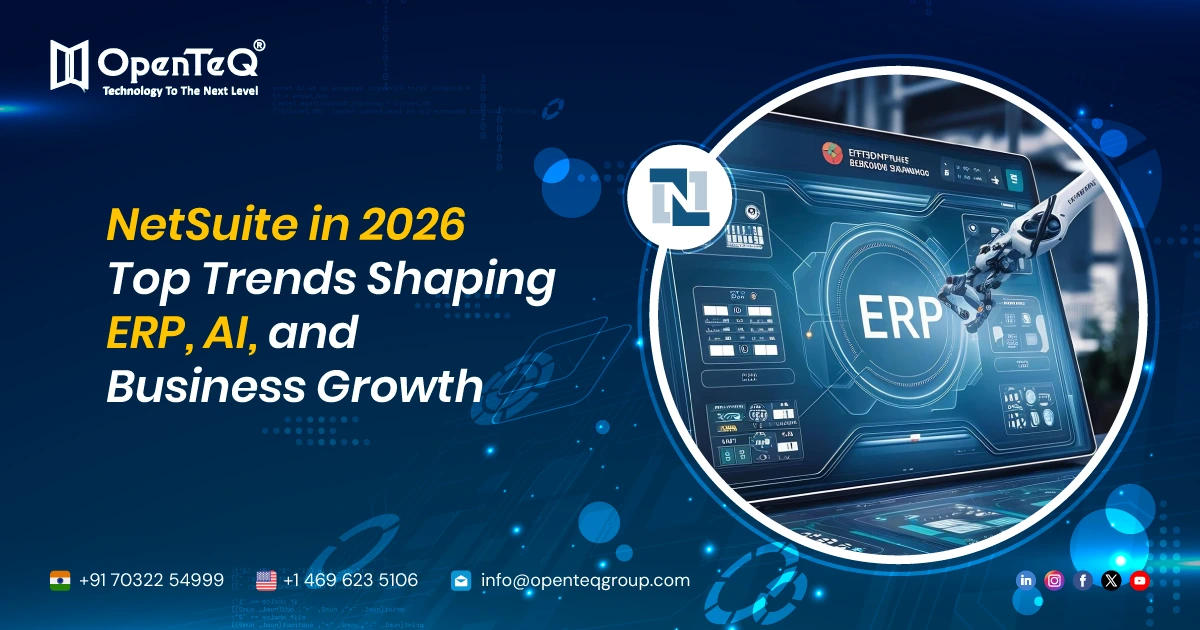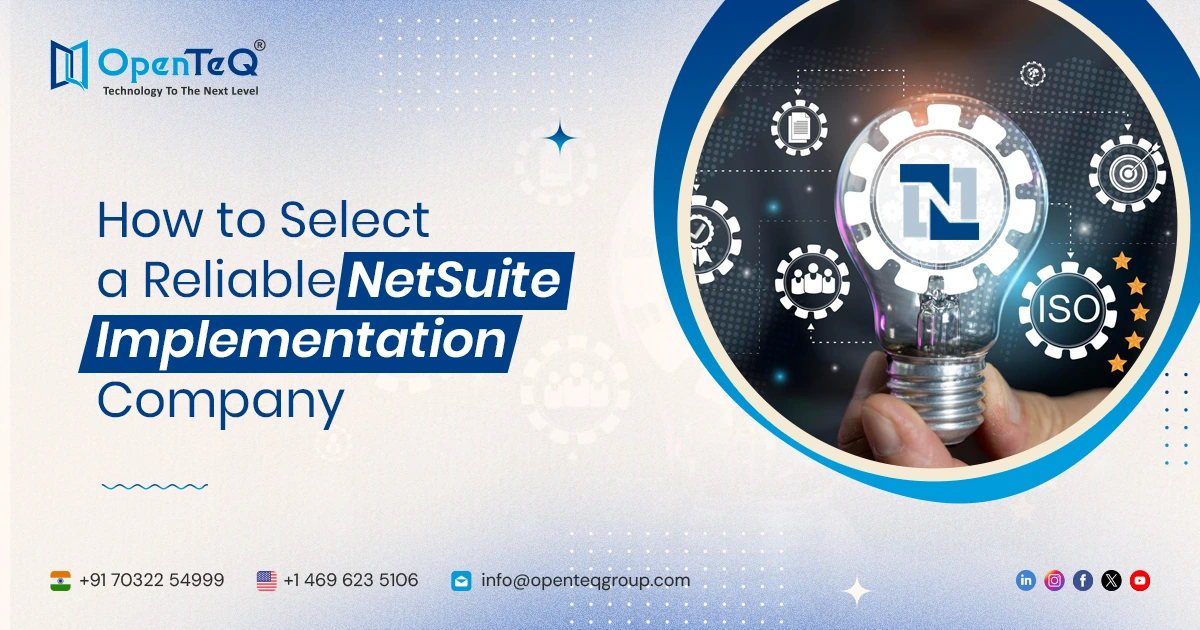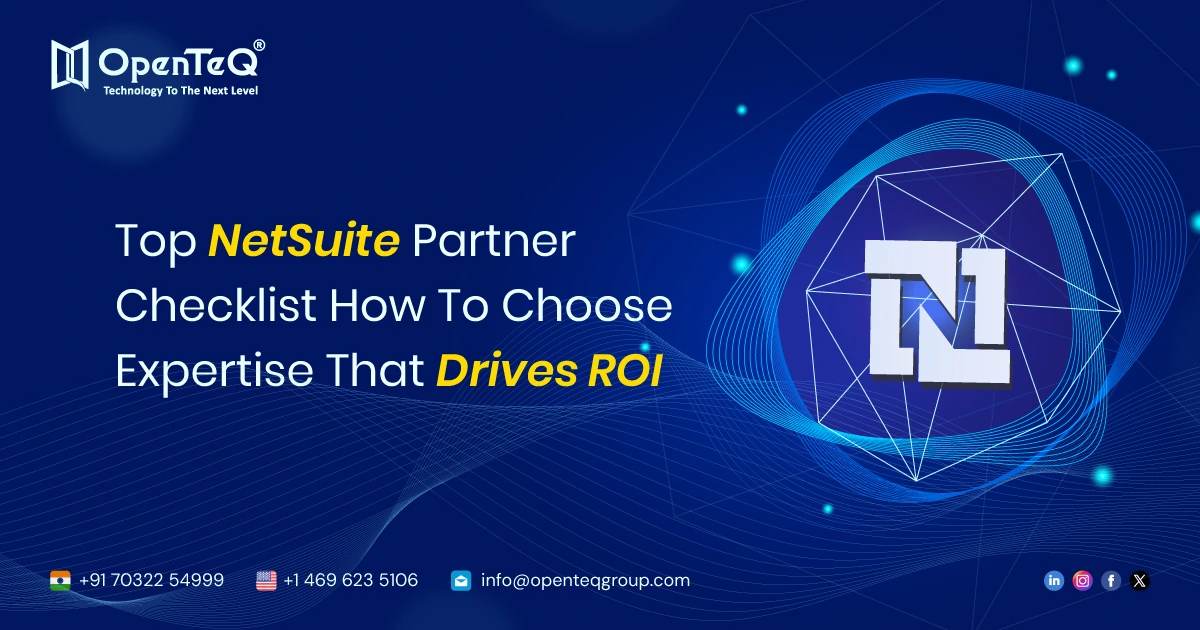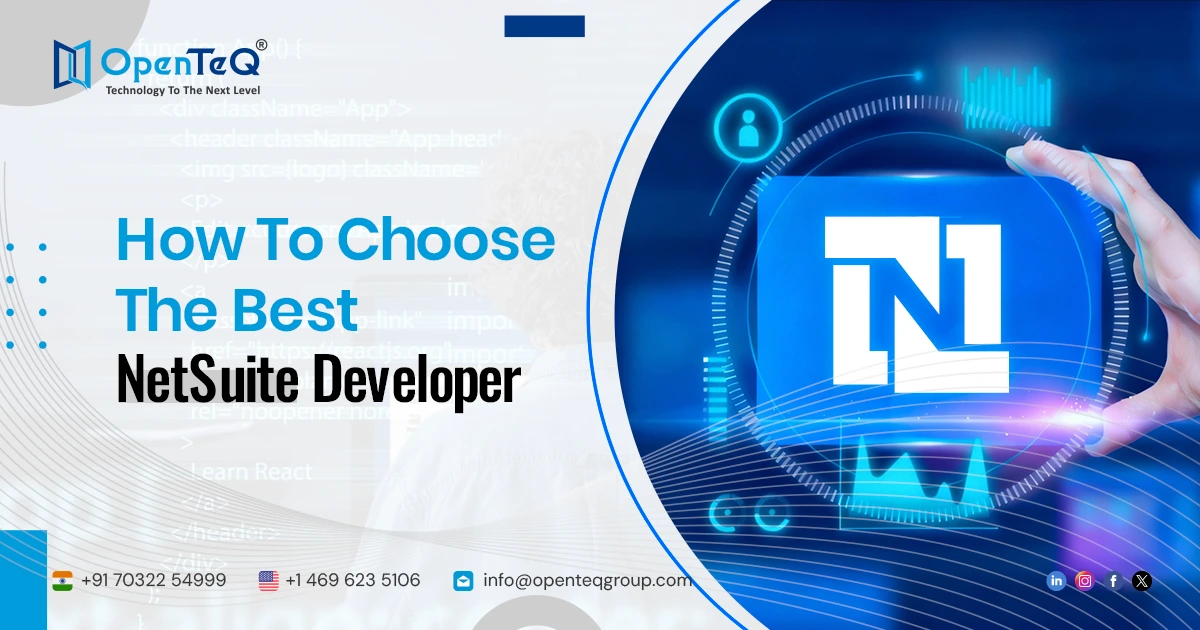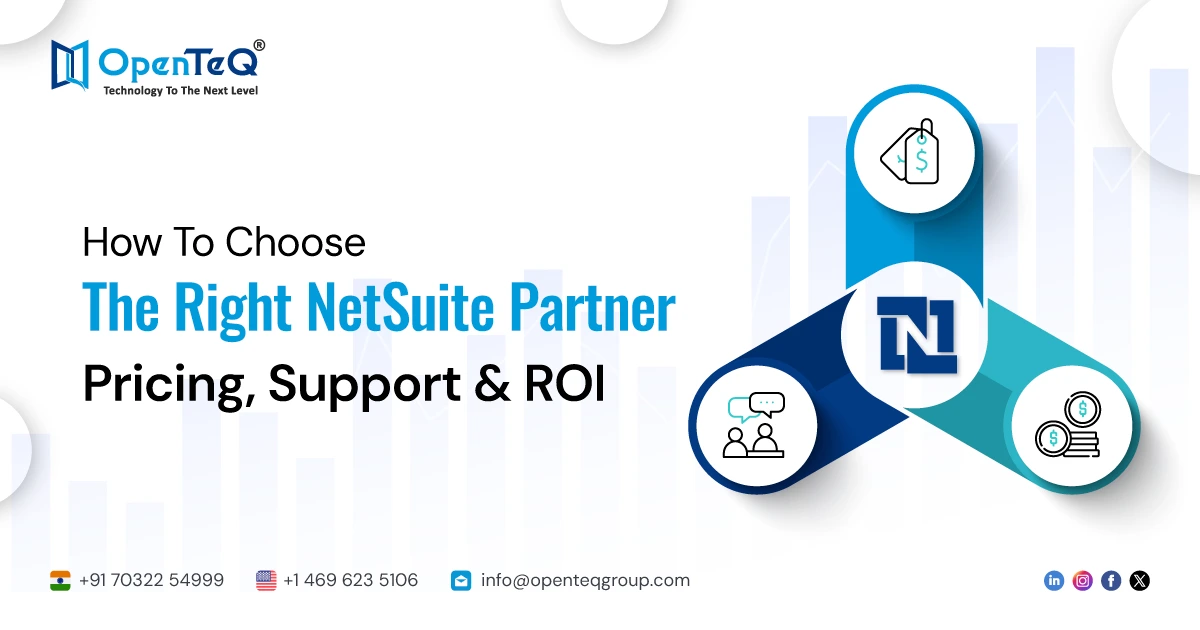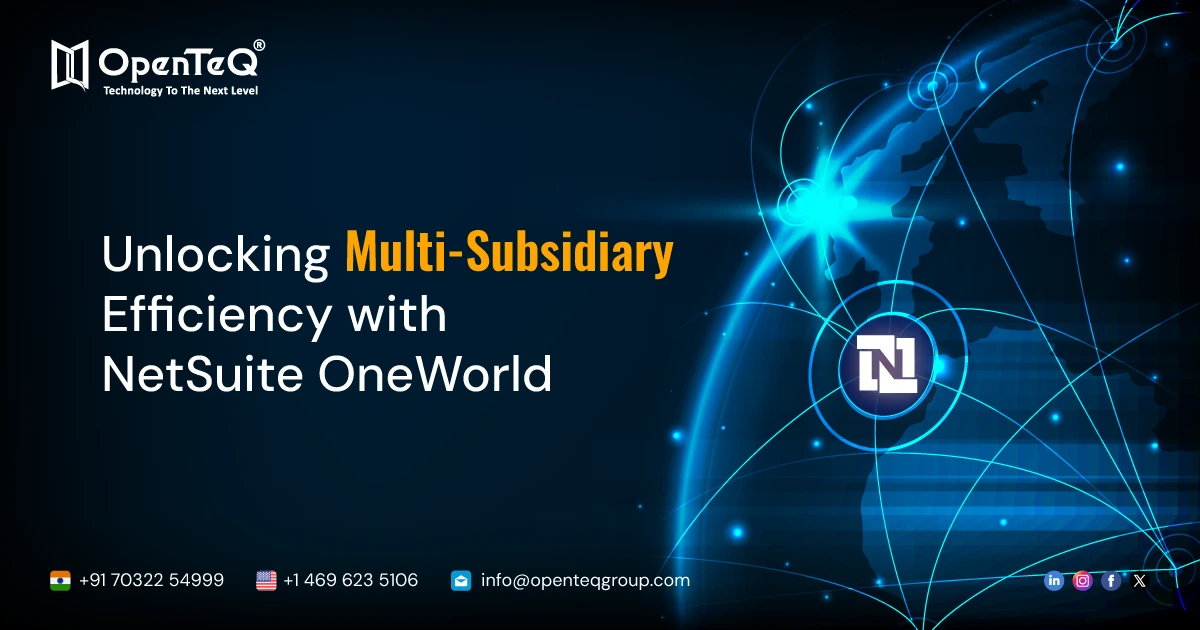Navigating the Complexities of NetSuite ERP: Expert Tips to Optimize Support Services
Are you struggling to maximize the full potential of your NetSuite ERP system? Navigating the complexities of NetSuite ERP can be challenging, but with expert support services, you can optimize your system and achieve your business goals. In this article, we will share valuable tips from industry experts to help you make the most of your NetSuite ERP support services and improve your overall ERP experience.
From streamlining processes to enhancing reporting capabilities, NetSuite ERP offers numerous benefits for businesses of all sizes. However, without proper guidance and support, it can be overwhelming to navigate its intricacies. That's where expert tips come in. With their extensive knowledge and experience, these experts will provide insights on how to effectively leverage NetSuite ERP support services, ensuring that you have the right tools and resources to address any challenges that may arise.
By implementing these expert tips, you can unlock the full potential of your NetSuite ERP system and optimize your support services. Whether you are a small business looking to improve efficiency or a large organization in need of advanced reporting and analytics, these tips will help you streamline processes, enhance productivity, and drive business growth. Let's dive in and discover how to navigate the complexities of NetSuite ERP with confidence.
Understanding the complexities of NetSuite ERP
NetSuite ERP is a comprehensive business management software that integrates core functions like financial management, customer relationship management (CRM), inventory management, and more. While it offers a wide range of features and functionalities, understanding and utilizing them to their full potential can be complex.
One of the complexities of NetSuite ERP lies in its customization capabilities. With the ability to tailor the software to meet specific business needs, it's important to have a clear understanding of how to configure and customize NetSuite ERP effectively. This requires in-depth knowledge of the system's architecture, data management, and workflows.
Another complexity lies in the integration of various modules within NetSuite ERP. From finance and accounting to inventory and order management, each module interacts with one another, creating a complex web of interconnected processes. Understanding these interdependencies is crucial for maximizing the efficiency and accuracy of your NetSuite ERP system.
Common challenges in NetSuite ERP implementation
Implementing NetSuite ERP can be a daunting task, and many businesses face common challenges during the process. These challenges can range from data migration and system configuration to user adoption and training.
Data migration is often a complex and time-consuming process. Transferring data from legacy systems to NetSuite ERP requires careful planning and attention to detail. Businesses must ensure that data is accurately mapped and validated to prevent any loss or corruption during the migration process.
System configuration is another challenge that businesses may encounter. NetSuite ERP offers a wide range of configuration options, allowing businesses to customize the system to suit their unique needs. However, without proper guidance, configuring the system can be overwhelming. It's crucial to have a clear understanding of business requirements and best practices to optimize the configuration process.
User adoption and training are also common challenges in NetSuite ERP implementation. As with any new software, employees may resist change or struggle to adapt to the new system. Providing comprehensive training and ongoing support is essential to ensure smooth adoption and utilization of NetSuite ERP.
The importance of NetSuite ERP support services
NetSuite ERP support services play a vital role in ensuring the success of your ERP implementation and ongoing operations. These services provide expert guidance, troubleshooting assistance, and continuous system monitoring to address any issues that may arise.
One of the key benefits of NetSuite ERP support services is the access to experienced consultants and specialists. These professionals have extensive knowledge and expertise in NetSuite ERP, allowing them to provide valuable insights and recommendations tailored to your specific business needs. From system configuration to customizations and integrations, they can help you navigate the complexities of NetSuite ERP with ease.
In addition, NetSuite ERP support services offer continuous system monitoring and proactive maintenance. This ensures that your system is running smoothly and efficiently, minimizing the risk of downtime and data loss. With regular system health checks and performance optimizations, you can maximize the performance and reliability of your NetSuite ERP system.
NetSuite Strengthens Its Partner Network with OpenTeQ Technologies
Tips for optimizing NetSuite ERP support services
To optimize your NetSuite ERP support services, consider the following expert tips:
1. Clearly define your goals and requirements: Before engaging with NetSuite ERP support services, clearly define your business goals and requirements. This will help you align your support services with your specific needs and ensure that you get the most value out of the partnership.
2. Regularly communicate with your support provider: Establish open lines of communication with your NetSuite ERP support provider. Regularly communicate any challenges, concerns, or changes in your business requirements. This will help them understand your evolving needs and provide tailored solutions to address them.
3. Invest in training and knowledge transfer: Empower your internal team by investing in training and knowledge transfer programs. This will enable your team to effectively utilize NetSuite ERP and reduce dependence on external support services. Training can include general system usage, customizations, and reporting capabilities.
4. Stay informed about system updates and enhancements: NetSuite regularly releases updates and enhancements to improve the functionality and performance of their ERP system. Stay informed about these updates and work closely with your support provider to leverage new features and functionalities that can benefit your business.
5. Leverage reporting and analytics capabilities: NetSuite ERP offers robust reporting and analytics capabilities that can provide valuable insights into your business performance. Work with your support provider to customize and optimize these capabilities to suit your specific reporting needs. This will enable you to make data-driven decisions and drive business growth.
Choosing the right NetSuite ERP support provider
When selecting a NetSuite ERP support provider, consider the following factors:
1.Experience and expertise: Look for a provider with extensive experience in NetSuite ERP support services. They should have a team of certified consultants and specialists who understand the intricacies of the system.
2.Industry knowledge: Choose a provider that has experience working with businesses in your industry. They should understand the specific challenges and requirements of your industry, enabling them to provide tailored solutions.
3.Service offerings: Evaluate the range of services offered by the provider. Ensure that they can cater to your specific needs, whether it's system configuration, customizations, integrations, or ongoing support and maintenance.
4.Customer reviews and testimonials: Read customer reviews and testimonials to gauge the provider's reputation and customer satisfaction. Look for providers with positive feedback and a track record of delivering high-quality support services.
5.Cost and scalability: Consider your budget and future growth plans when evaluating the cost and scalability of the support services. Ensure that the provider offers flexible pricing models and can accommodate your evolving business needs.
Key features and functionalities of NetSuite ERP support services
NetSuite ERP support services offer a wide range of features and functionalities to optimize your system and enhance your overall ERP experience. Some key features and functionalities include:
1.System configuration and customization: Support services can assist with system configuration and customizations to align NetSuite ERP with your specific business requirements. This includes setting up workflows, defining user roles and permissions, and customizing forms and reports.
2.Integration and data migration: Support services can help you integrate NetSuite ERP with third-party applications and migrate data from legacy systems. This ensures seamless data flow and eliminates manual data entry, saving time and reducing errors.
3.Ongoing system monitoring and maintenance: Support services include continuous system monitoring and proactive maintenance to ensure optimal performance and reliability. This includes regular system health checks, performance optimizations, and bug fixes.
4.User training and support: Support services offer comprehensive user training programs to empower your internal team. They provide guidance on system usage, best practices, and troubleshooting assistance. This reduces dependency on external support and enhances user adoption.
5.Reporting and analytics optimizations: Support services can help you leverage NetSuite ERP's reporting and analytics capabilities to gain valuable insights into your business performance. They can customize and optimize reports, dashboards, and analytics tools to suit your specific reporting needs.
Best practices for managing NetSuite ERP support services
To effectively manage your NetSuite ERP support services, consider the following best practices:
1. Establish clear communication channels: Set up regular communication channels with your support provider. This can include scheduled meetings, email updates, and a dedicated support portal. Ensure that you have a designated point of contact for any support or technical queries.
2. Document and track support requests: Maintain a comprehensive log of support requests and their resolutions. This helps track the progress and effectiveness of the support services and allows you to identify any recurring issues that need to be addressed.
3. Regularly review system performance: Conduct regular system performance reviews with your support provider. This includes analyzing system logs, monitoring key performance indicators, and identifying areas for improvement. Regular reviews ensure that your NetSuite ERP system is optimized for maximum efficiency.
4. Stay up-to-date with NetSuite ERP enhancements: Keep yourself informed about the latest updates and enhancements released by NetSuite. Regularly review the release notes and work with your support provider to leverage new features and functionalities that can benefit your business.
5. Provide feedback and suggestions: Share your feedback and suggestions with your support provider. This helps them understand your evolving needs and allows them to continuously improve their support services. Your input can contribute to the ongoing enhancement of your NetSuite ERP system.
Conclusion: Maximizing the benefits of NetSuite ERP support services
Navigating the complexities of NetSuite ERP can be challenging, but with the right support services, you can optimize your system and achieve your business goals. By implementing expert tips, choosing the right support provider, and leveraging key features and functionalities, you can unlock the full potential of your NetSuite ERP system. Remember to regularly communicate with your support provider, invest in training, and stay informed about system updates. With the right support, you can streamline processes, enhance productivity, and drive business growth with confidence.
Contact OpenTeQ today and see how NetSuite ERP can work wonders for you!
Learn more at www.openteqgroup.com. Contact us at +91-7032254999 or +1 602 666 8247 or email us at info@openteqgroup.com.
